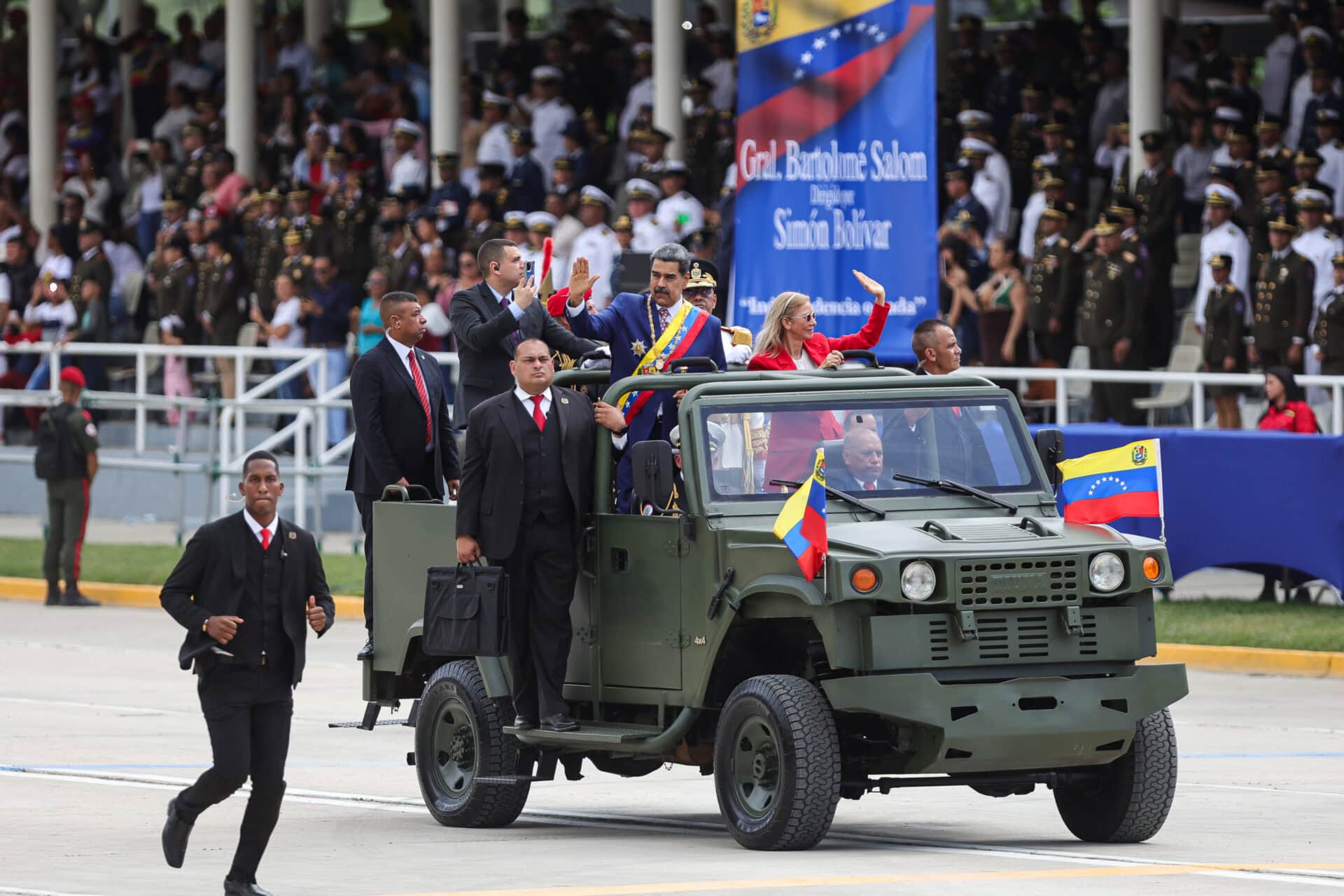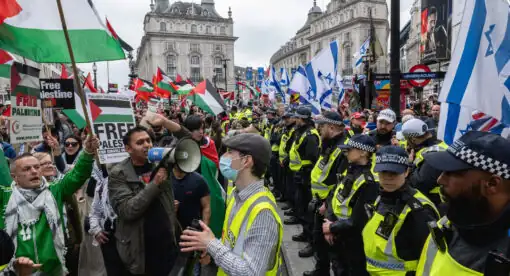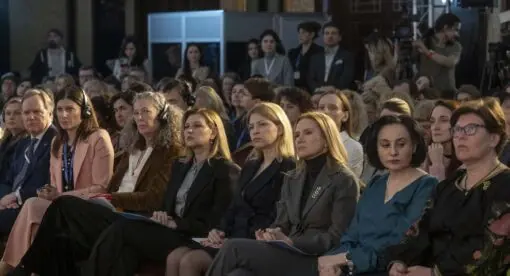As the possibility of military escalation – or even attempted regime change – by the United States in Venezuela grows stronger, many questions about the South American country’s future remain unanswered. While the U.S. has initiated its campaign through actions against drug cartels inside the country and off its coast seeking to dislodge illicit actors Washington perceives as eroding U.S. security, its long-term intentions there and the effects of U.S. action on Venezuela’s illicit drug networks and its natural resources remain largely unclear. While the advisability of regime change is a wider question, military escalation or the removal of Venezuelan President Nicholas Maduro will not achieve stated U.S. policy goals of curbing the flow of illicit drugs into the U.S.
This is due to the nature of the illicit drug trades and the actors who sponsor them. These networks have consistently displayed adaptability in the face of interdiction efforts – developing alternatives to chemical precursors, production processes, trafficking routes, and shifting political realities when needed. Illicit networks thrive on instability and conflict, exploiting the lack of governance and oversight in the areas in which they operate. Any U.S. military operations that seek regime change or the weakening of Maduro’s government risk creating conditions in which illicit actors thrive.
Strong evidence points to the involvement by high-ranking Venezuelan officials in the illicit drug trade, enabled by Maduro’s leadership. Even if Maduro is removed from power, the criminal actors deeply embedded in Venezuelan institutions would likely remain, despite the hopes of some U.S. officials. After all, Venezuela’s Cartel De Los Soles (CDS) takes the form of a network of individual corrupt government and military officials, not of a strict, unified organization. No military operation or change in leadership is likely to dismantle this structure as it encompasses a culture of corruption with an imperative to develop and maintain alternative revenue streams. In a similar vein, colectivos paramilitary groups also operate in a fragmented way and engage in the drug trade, although they are more independent from Maduro than CDS structures. Furthermore, even if the installation of a new, post-Maduro political system could dislodge networks from the top tiers of government, it would not uproot them from the country’s wider political and criminal landscape but instead would further fragment networks and introduce competition and violence among their remnants, making the illicit flow of drugs in the Western Hemisphere more difficult to monitor. As Washington has used counternarcotics as justification for potential regime change in Venezuela, it is paramount that the U.S. account for the potential long-term effects on the country’s criminal and political landscape should it come to pass.
The Drive to Depose Maduro
Trump and his administration have taken a hard-line stance on the current Venezuelan regime. The president has made it clear through action and rhetoric that he wants to see Maduro ousted and narcotics trafficking activities in the country halted. The United States has amassed a huge military presence in the region, stationing thousands at least 10,000 U.S. forces, fighter jets, the USS Gerald R. Ford carrier strike group, and intelligence, surveillance, and reconnaissance capabilities in the U.S. Southern Command (SOUTHCOM). Furthermore, Trump declared that the United States is in an “armed conflict” with cartels, designating some groups as foreign terrorist organizations (FTOs) and providing justification for extrajudicial actions with no proof of culpability. To date, the United States has conducted over 20 strikes targeting alleged drug smugglers near the South Caribbean Sea that have caused scores of deaths. Trump had said that ground strikes in Venezuela were next, with other U.S. officials indicating that Maduro’s days are “numbered.” Even though Trump recently said he “doubted” the U.S. would go to war with Venezuela, given the military buildup, kinetic strikes, and CIA authorization, the likelihood of further action inside Venezuela is high.
While Venezuela serves as a transit hub for illicit flows, it is not a prominent drug production location, accounting for a small portion of global cocaine production with virtually no role in the fentanyl trade. SOUTHCOM reported in 2022 that 80% of the drug flow into the United States from SOUTHCOM’s area of responsibility (AOR) went through the Eastern Pacific, while the flow through the Caribbean, the typical route for Venezuelan exports, accounted for only 20%.The DEA reported in 2021 that only 8% of cocaine destined for the U.S. in 2020 was trafficked through the Caribbean from Venezuela. Accounting for this, some experts and analysts have challenged the premise that striking individual smuggling boats, without evidence that drugs were present on the vessels, will deter drug flows.
Despite its current justification, the White House’s motives for seeking regime change may extend beyond counternarcotics. The first Trump administration had pressured the Venezuelan government over its connections to illicit networks largely through the use of economic and diplomatic sanctions. While that administration’s officials discussed military intervention, congressional opposition discouraged action. With Republicans controlling Congress, however, the current administration entered office touting a Venezuela policy promoting military operations.
Like a number of other presidential administrations, both Trump White Houses have also criticized human rights abuses and authoritarian practices under Maduro. Venezuela’s significant oil and gold reserves may be another motivation for Washington to pursue political change in favor of a government more cooperative with U.S. interests. Furthermore, the alignment of Maduro’s government with U.S. adversaries including Iran, Russia, Cuba, and China, and Trump’s domestic political platform including his “tough on crime” narrative could also be motivating factors.
What is the Cartel De Los Soles?
Venezuela has long served as a hub for illicit activity in Latin America. It sits between major cocaine production zones in Colombia and consumer markets in Europe and North America, making it a valuable transit point for drug trafficking operations. Weak governance has left enforcement and security institutions vulnerable to corruption by criminal networks. This permissive environment has attracted diverse criminal organizations to set up operations in the country, including Colombian paramilitaries like the National Liberation Army (ELN) and dissident members of the Revolutionary Armed Forces of Colombia (FARC), plus Mexican cartels and homegrown Venezuelan criminal networks. Venezuela’s porous borders, particularly with Colombia, allow these criminal groups to operate strongholds and trafficking corridors with relative impunity. Corruption has only become more systematized under the Maduro regime, entrenching Venezuela’s role as a key illicit hub and transit point for transnational drug trafficking.
Cartel De Los Soles is a term coined by analysts to describe a corruption network within Venezuelan institutions. Unlike conventional drug trafficking organizations with vertical leadership structures, CDS operates as a patronage system in which members are embedded within Venezuelan state institutions, particularly the military. High-ranking military officials and political elites that are involved in this network leverage their positions to facilitate highly profitable illicit operations. CDS has been accused of providing material support to other groups, including Tren de Aragua, a Venezuelan gang designated as an FTO. CDS members work to facilitate illicit activity at a high level, often through logistics and coordination, relying on other organized criminal groups to engage in lower-level operations. This dynamic creates an environment in which traffickers are at a strategic advantage when engaging with CDS members who can use their government or military positions to help facilitate illicit operations.
Maduro has strategically leveraged and weaponized the CDS structure as a coup-proofing mechanism to preserve his hold on power. Through intimidation and emphasis on loyalty rather than competence, Maduro has cultivated a military leadership that is personally invested in and reliant upon regime survival. In allowing high-ranking officers to profit from illicit operations, particularly drug trafficking and illegal mineral extraction, Maduro has made them reliant on himself for alternative revenue and complicit in widespread corruption. Their financial security and freedom from imprisonment are therefore linked with Maduro’s fate. International indictments and sanctions against military leaders, such as Defense Minister Vladimir Padrino López, for their involvement in narco-trafficking often tend to strengthen Maduro’s leverage over them. This strategy also benefits Maduro’s political standing domestically: The military remained fiercely loyal to Maduro during the contested 2024 elections.
Potential Consequences of Regime Change
While the Trump administration may seek to weaken or dismantle the Maduro regime as a means to eliminate major drug syndicates operating in Venezuela, that may only fragment and complicate illicit flows by eliminating political leadership but not the networks that operate underneath the surface, while also potentially creating openings for external criminal groups to exploit.
Persistence
The deeply embedded, nonhierarchical structure of CDS suggests that trafficking operations would persist even if Maduro is removed from power. Under Maduro, Venezuela’s military and security apparatus has become dependent on illicit revenue streams. Lack of economic alternatives in the country, too, create an imperative to engage in illicit drug trafficking. Toppling Maduro would not necessarily dismantle the corruption networks within the military he helped create and support, nor would it improve the country’s economic weakness. The infrastructure supporting these illicit trades, such as logistics networks, protection rackets, and established relationships with other transnational criminal organizations, is so deeply entrenched that it is likely would continue to function independent of any single leader.
These factors give high-ranking military officers who have built personal wealth through drug trafficking both the means and incentive to continue these operations regardless of who controls the presidential palace. Furthermore, in a post-Maduro Venezuela facing potential economic turmoil, illicit revenues could become even more critical for military officials, further exacerbating dependence on income generated from drug trafficking. Economic uncertainty that could accompany regime change could paradoxically strengthen CDS networks as a source of reliable income for security forces. Because of this, conventional counternarcotics strategies targeting cartel leadership are unlikely to prove effective in curbing drug flows.
Fragmentation
Maduro’s leadership has exacerbated domestic economic and political instability, along with enabling illicit networks that undermine human security both in the country and the region at large. However, it’s important to consider how a forced regime change could lead to increased violence and instability within Venezuela’s criminal landscape by fueling competition among criminal groups. Maduro’s sudden departure could trigger power vacuums that multiple actors would seek to fill and could change the balance of strategic alliances, complicity, and hostility that exists among different criminal networks. Additionally, Maduro’s removal could fracture the CDS network as different military officials vie for control over lucrative trafficking logistics and routes. This could split CDS into competing factions that might engage in or condone violence to establish dominance, transforming a relatively stable network of corruption into a fragmented battleground. Finally, political chaos caused by regime change could exacerbate tensions between colectivos and the military, potentially leading to outbursts of violence between the paramilitaries and CDS-affiliated military officials. Maduro’s removal might also lead to conflict between various colectivos by spurring competition between groups over access to trafficking infrastructure.
Spillover
Competition triggered by Maduro’s ouster could extend beyond the CDS to encompass struggles among various criminal organizations over trafficking corridors and access to the security apparatus. Groups that previously operated under explicit or implicit arrangements mediated by regime officials might find themselves in direct conflict if those mediating structures collapse. Further, Maduro’s departure could create opportunities for external illicit networks to expand their footprints in Venezuela. Mexican cartels like Sinaloa and the Jalisco New Generation Cartel, Colombian criminal groups, and Brazilian gangs are poised to gain power should Maduro fall as they establish new operations or expand existing ones. A fracturing of CDS or influx of competing groups would ultimately breed more competition, increasing violence and instability while not necessarily resulting in a reduction in drug flows.
Neither of these possibilities addresses one of the largest risk factors in Venezuela: Colombia’s ELN, the insurgent group that has become a major actor in the cocaine trade. After improved Colombian counterinsurgency operations displaced the ELN in the 2000s, it re-established itself in the region’s borderlands, where it serves as the primary mover of cocaine from Colombia to Venezuela. The CDS, along with the wider Venezuelan military, actively works alongside the ELN, to the extent of fighting directly against its opponents. Stefano Ritondale, the chief intelligence officer of intelligence analytics firm Artorias, has characterized the Venezuelan state of Apure, which shares a 400-mile border with Colombia, as an ELN fiefdom given the group’s free rein over security in the state. The Maduro government has even used the ELN to oversee elections in the region and coerce votes for Maduro.
Given the group’s major role in drug trafficking in Venezuela, any effective measures to curb those flows by the U.S. must address it as well. Cocaine exports from Venezuela will not be stopped by strikes on boats or a Venezuelan government cooperative with the U.S., and a collapse of the CDS may allow the ELN to expand its power in Venezuela and become the new controlling force of the borders. Given the already significant and militarized presence of the ELN across much of the country, rooting out its members would be difficult, especially with a diminished (or complicit) Venezuelan military.
Resource Corruption
In addition to narcotics flows, organized criminal elements exploit Venezuela’s natural resources. Venezuela’s oil sector is notoriously corrupt, to the point where fuel smuggling is rampant, since so much of the oil is being stolen and sold by officials. Gold mining is also deeply tied to crime in the country. Legitimate private companies often work hand-in-hand with smugglers, while many illicit mines in the south of the country are controlled by encroaching Brazilian cartels.
The deep criminality in the extracting, refining, and distributing institutions dealing with Venezuela’s natural resources makes it less likely that U.S. companies would be willing to undertake operations in the country with increased security risks. Further instability caused by gang wars, especially in the country’s more remote regions, would only compound the risk. Criminal groups could destroy existing or new infrastructure to hinder operations. Exacerbated economic instability or disrupted revenue streams could also lead to increased theft from pipelines. As such, it is unlikely that U.S. businesses could benefit in any real way from an attempted regime change without systemic change in Venezuela’s natural resource sector.
Venezuela’s Political Opposition
A central question is what counternarcotics strategy a successor might pursue if Maduro were ousted. Opposition leader Maria Machado, the Nobel Peace Prize laureate who secured 90% of her party’s 2023 primary vote before being blocked from running in the presidential general election, would be a logical choice to assume the presidency. She has endorsed liberal democratic principles, privatization, free market ideas, and U.S. military intervention in Venezuela. So far, Machado has not released any counternarcotics strategy. She has, however, voiced support for U.S. strikes on alleged smuggling boats as well as Trump’s moves against Maduro. She has also called for broad actions against illicit smuggling networks linked with Maduro’s regime and increased cooperation with U.S. counternarcotics efforts, and has pledged to overhaul “corrupt military and security institutions.”
The removal of the corrupt elements of Venezuela’s security apparatus would likely have a significant effect in stemming Venezuela’s illicit flows. Machado has said U.S. military pressure would be the driving force in the overhaul of Venezuelan institutions, without providing an in-depth explanation of how. As many CDS-associated operators are positioned far inland from Caracas, achieving this objective would require U.S. military operations deep in Venezuelan territory. Furthermore, the corruption is so entrenched that it could require a complete purge of the military apparatus to remove cartel-associated elements. This may not be achievable with U.S. military pressure alone.
Policy Recommendations
It is imperative that the U.S. consider the impact of either military escalation or full regime change on Venezuela’s illicit landscape and incorporates this understanding into its ongoing strategy. Regime change and military strikes have been unsuccessful, historically, in effectively degrading illicit networks, let alone reforming a country’s broader political and security landscape. Nevertheless, members of the administration, including Trump himself, have routinely stated that military strikes are an effective tool for doing so. Washington should reconsider its current trajectory regarding Venezuela, or at least account for specific strategies that could help mitigate implications for criminal networks.
The United States should leverage its existing Joint Interagency Task Force-South, an initiative within SOUTHCOM, to improve monitoring, coordination, and execution of policies in respect to Venezuela-based cartels and groups in neighboring Colombia, Brazil, and Guyana. The task force should seek to improve non-kinetic methods for targeting and disruption of criminal networks operating both in Venezuela and the region, relying upon economic sanctions, extraditions, intelligence-sharing, cyber monitoring, and criminal indictments.
Building off of this interagency strategy, the U.S. should seek to strengthen partnerships such as joint task forces, intelligence-sharing and tip-off programs, mutual assistance with legal investigations, and coordinated raids with Venezuela’s neighbors. Specifically, the U.S. should seek to establish a combined maritime task force under SOUTHCOM and a combined overland task force under the U.S. Army South, extending into multilateral partnerships with countries within SOUTHCOM’s area of responsibility. This reduces the space for the spillover of illicit flows and criminal actors from Venezuela, while also improving mutual trust and coordination between the U.S. and its southern neighbors.
If the U.S. seeks to stem the flow of illicit drugs into its borders and address the issue of widespread consumption, it should seek to reduce demand. The current approach, rooted in the concept that illicit trades can be thwarted by tackling trafficking at its source, only addresses one component of the issue. The U.S. should seek to build on the previous Trump administration’s Initiative to Stop Opioid Abuse and Reduce Drug Supply and Demand to incorporate greater public awareness about drug proliferation and consumption, improve evidence-based addiction treatment, and provide harm reduction kits that include overdose-reversal drugs like naloxone and test strips. During Trump’s second term, references to combating the opioid crisis, even when explicitly mentioning that harm reduction effort, refer instead to targeting drug dealers and the flow of drugs in the country.
Collectively, these policies can facilitate a more effective, forward-looking strategy in Venezuela that acknowledges the clear risk that military escalation or regime change alone presents in complicating existing illicit networks without seriously reducing the flow of illicit drugs into the U.S. homeland. The U.S. should reconsider those military options given the likelihood that they would only exacerbate illicit networks’ influence and presence, creating prime conditions – conflict and instability – for criminals to exploit.
The views expressed in this article are those of the author and not an official policy or position of New Lines Institute.









